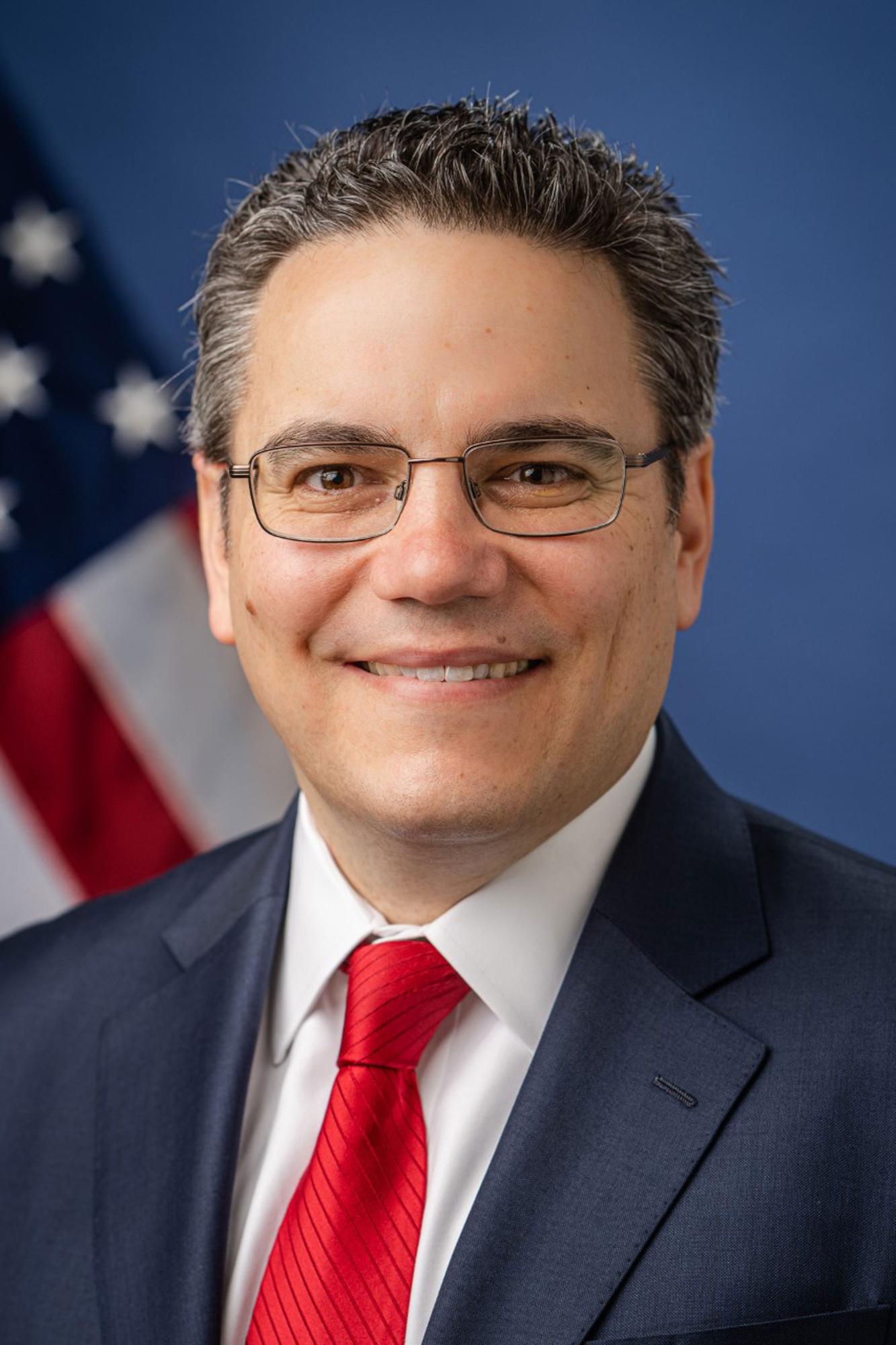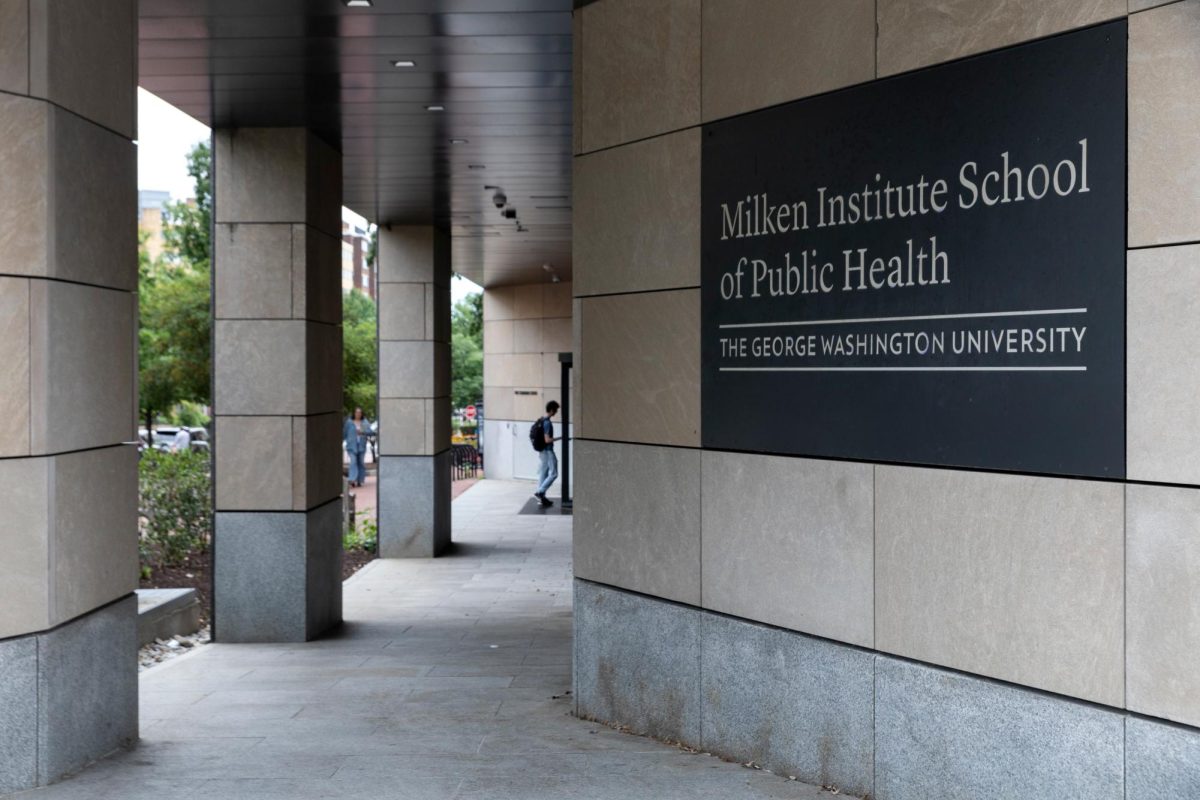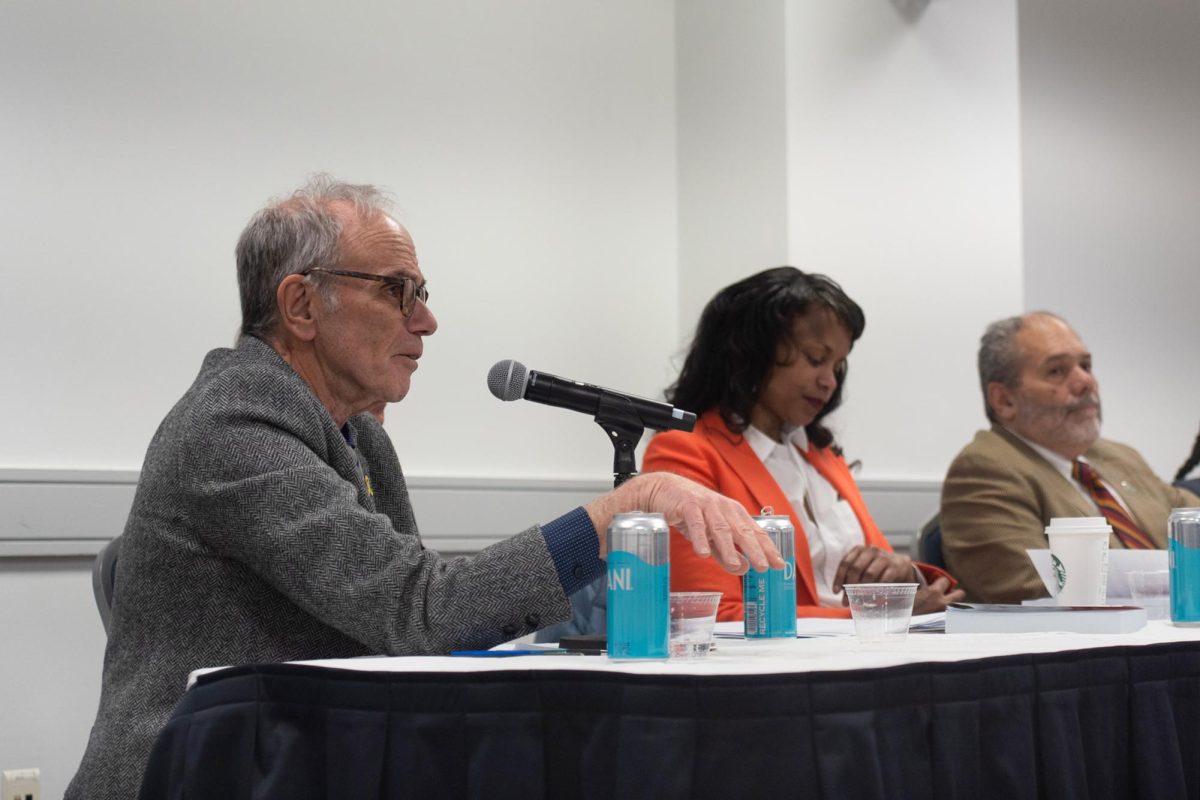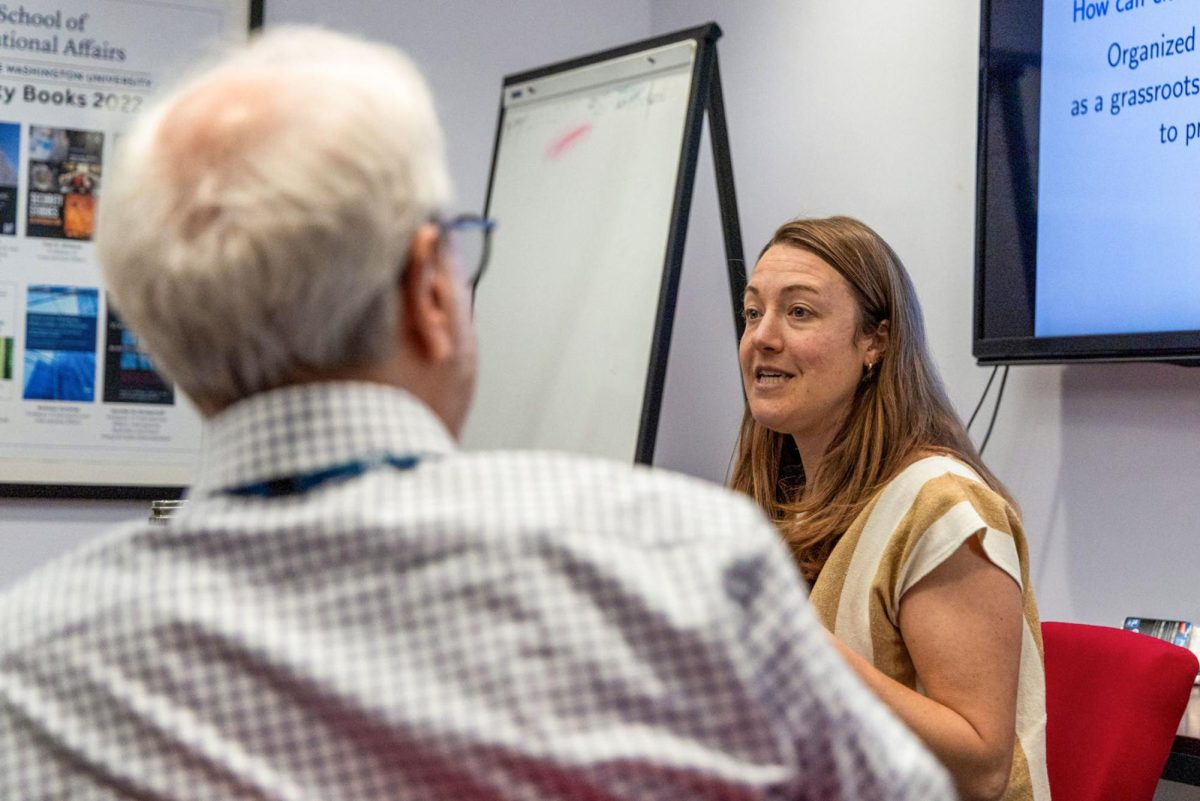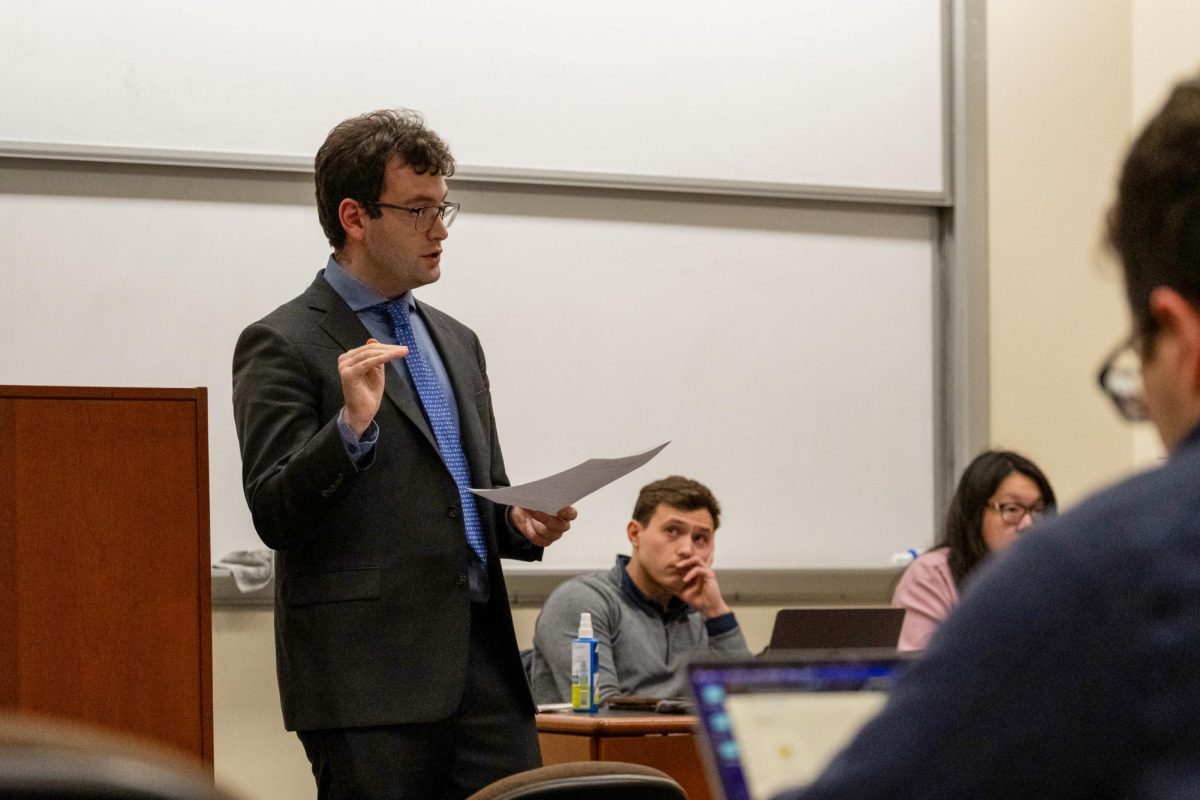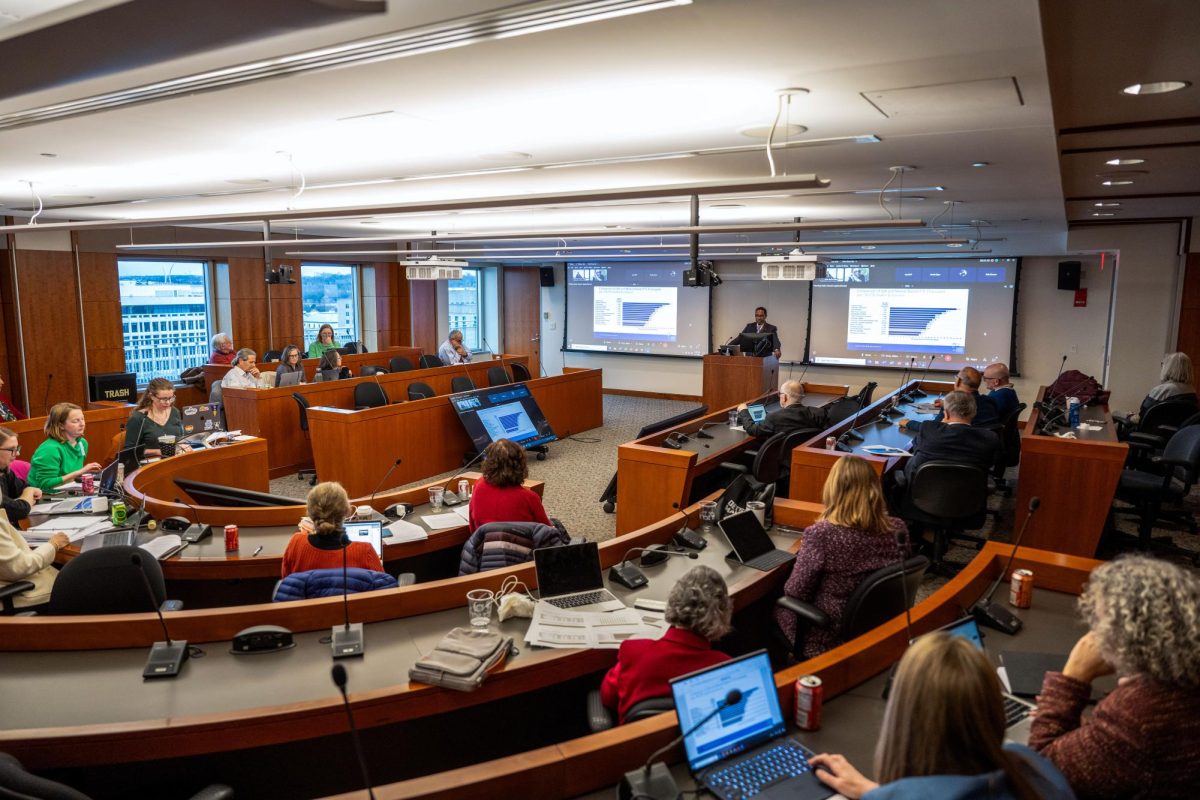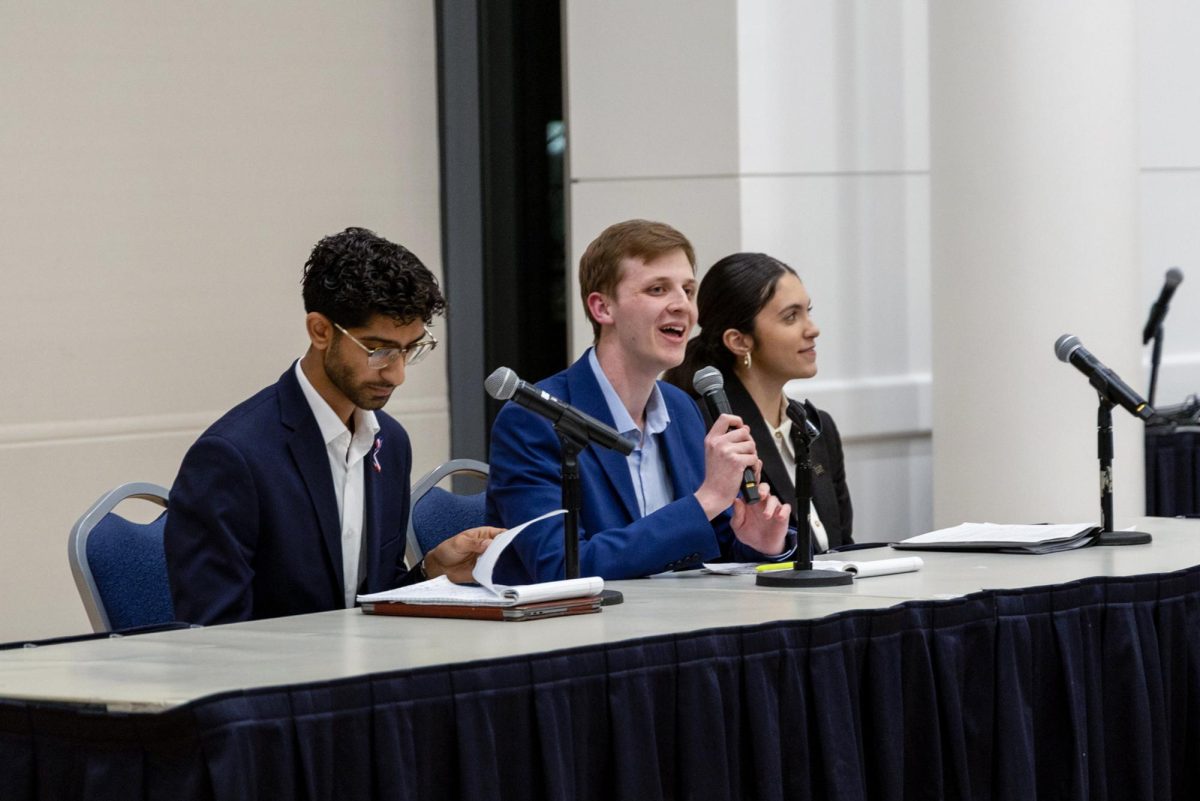The former assistant secretary of commerce for industry and analysis discussed his work at the Department of Commerce during the COVID-19 pandemic and the importance of ethical decision-making in government at the Elliott School of International Affairs on Monday.
Grant Harris — who served in the role of assistant secretary from April 2022 to January 2025 under President Joe Biden’s Administration — said his work included bettering the supply chain in the United States after the COVID-19 pandemic exposed inefficiencies within the chain in the production of necessary materials. The talk, titled “Ethical Leadership in a Changing World: Insights from the Former Assistant Secretary of Commerce,” was moderated by Chris Kojm, a professor of international affairs and the director of the Leadership, Ethics and Practice Initiative — a program that aims to prepare students for leadership challenges throughout their lives — that hosted the event.
Harris said the mission of the Commerce Department was “broad” but centered on “sustaining and advancing” the competitiveness of U.S. industries by aiding supply chain management.
Harris said the COVID-19 pandemic disrupted supply chains and revealed how “reactive” many companies in the United States could be to changes in supply and demand. He said supply chain inefficiencies in the United States became a further concern to the commerce department because of their importance in geopolitical competition, particularly between the United States and China.
“So we saw massive impacts of supply chains, but there was also, had been growing realization in recent years that things like critical minerals or emerging technologies were vastly important to supply chains and that China in particular had made great investments in these supply chains and had been speaking more and more openly about its industrial strategy at policy,” Harris said.
Harris said due to these concerns, his team worked in a “proactive” way to increase supply chain planning and productivity in the United States through policymaking and screening investments made in U.S. projects. He said he thinks the best approach would be for the United States to invest more in computer chips designed for artificial intelligence and work to improve supply chain production of advanced technology to prevent adversaries from accessing and using certain technology, like AI.
After discussing his time in the Biden administration, Harris took questions from the audience on the current status of trade and tariffs in the United States.
President Donald Trump has moved to place a wide array of tariffs on goods that enter the United States from countries like China, Mexico and Canada. This policy change has raised concern from some economists who have said the tariffs could cause a recession.
Harris said the tariff policies that Trump implemented have led to increased instability for companies in the United States. He said while tariffs are a “really important tool” used to encourage or discourage behavior in supply chains or decrease market fragility, they work best when policymakers consider their possible impacts on companies.
Harris said it is also necessary that the application of tariffs is consistent with previous statements and policies so that companies are able to properly adjust to them.
“I think that there are a lot of problematic things about our current tariff policies that are creating so much uncertainty that people don’t know what to do with them,” Harris said.
Harris said for many years the U.S. government has encouraged companies to pursue supply chains across North America through policies like the North American Free Trade Agreement. He said the unpredictability of tariff policies under Trump makes production and supply chain planning a challenge for U.S. companies.
Harris also said instability in tariff policy and institutions in the current political climate should influence how students go about finding career opportunities. He acknowledged that the elimination of employees at institutions like the State Department and U.S. Agency for International Development has increased uncertainty for many graduating students seeking jobs in the government.
Harris spoke to the importance of students expanding their personal “tool kit” as an essential way of advancing their career. He said the ability to think and act proactively to explain and present information clearly to different audiences are powerful contributors to career advancement.
Harris said he hopes students won’t get discouraged by the changing job market and that while career options may look different now than they did a few years ago, students should continue down their career paths.
“There are ways to get the skills and contribute. There are ways at a grassroots level to be contributing to issues that really matter,” Harris said. “It might not have been what you conceived of two years ago or four years ago, and that’s okay because this is a much different world.”


